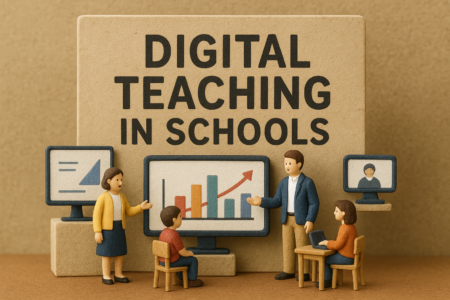Introduction
Dive into the world of music! Learning to play an instrument offers numerous benefits that can enrich your life in many ways. In this post, we’ll explore why picking up an instrument is a fantastic idea, from boosting your brainpower to enhancing your emotional well-being. So, whether it’s the guitar, piano, violin, or any other instrument, get ready to unlock your musical potential and discover the amazing benefits that await you!
Cognitive Benefits
- Enhanced Memory:
Playing music requires you to memorize notes, chords, and rhythms, which can improve both short-term and long-term memory. - Improved Focus and Attention:
Practicing an instrument demands concentration and attention to detail, helping to strengthen your ability to focus for extended periods. - Enhanced Problem-Solving Skills:
Music presents complex challenges that require problem-solving and critical thinking, such as deciphering sheet music or figuring out fingering techniques. - Increased Coordination:
Playing an instrument involves coordinating your hands, fingers, and sometimes even your feet, leading to improved motor skills and hand-eye coordination. - Stress Reduction:
Engaging in musical activities has been shown to reduce stress levels and promote relaxation, contributing to overall mental well-being. - Boosted Creativity:
Exploring music encourages creativity and self-expression, fostering innovative thinking and imaginative exploration. - Improved Academic Performance:
Research suggests that students who learn to play an instrument often perform better academically, potentially due to the cognitive benefits mentioned above. - Brain Development:
Learning an instrument during childhood or adolescence can positively impact brain development, particularly in areas associated with language, reasoning, and spatial intelligence.
Emotional Well-being
Playing a musical instrument offers significant emotional benefits, including stress relief, relaxation, and mood enhancement. Music provides an escape from daily worries and can evoke powerful emotions, offering solace during challenging times. Whether playing alone or in a group, music fosters a sense of connection and belonging, promoting teamwork and social bonds. Overall, learning an instrument enriches life with emotional resilience and a deeper sense of fulfillment.
Social and Communication Skills
Engaging in musical education offers more than just individual skill development; it also nurtures important social and communication skills. Through ensemble playing and performances, students learn the value of teamwork, collaboration, and effective communication. Working together towards a shared musical goal encourages mutual respect and cooperation among peers.
Moreover, music serves as a powerful tool for building social connections and fostering a sense of community. Whether through band rehearsals, choir performances, or jam sessions with friends, musical experiences bring people together, creating lasting bonds and enriching social interactions.
Overall, learning an instrument not only hones musical abilities but also cultivates valuable interpersonal skills essential for success in various aspects of life.
Discipline and Persistence
Learning an instrument isn’t just about hitting the right notes—it’s about commitment and dedication. Regular practice sessions teach us discipline, as we carve out time each day to hone our skills. Through the ups and downs of learning, we develop persistence, pushing through challenges and setbacks to reach our musical goals. So, whether it’s tackling a difficult passage or mastering a new technique, remember that persistence pays off in the long run. Here are some tips to keep you motivated along the way:
- Set achievable goals:
Break down your musical journey into smaller, manageable milestones. Celebrate each accomplishment, no matter how small, to keep your motivation levels high. - Establish a routine:
Schedule regular practice sessions into your daily or weekly schedule. Consistency is key to progress, so make practicing a habit. - Stay inspired:
Surround yourself with music that motivates and inspires you. Attend concerts, listen to recordings, or watch performances online to fuel your passion for playing. - Embrace challenges:
Don’t shy away from difficult pieces or techniques. Embrace them as opportunities for growth and improvement. With perseverance, you’ll conquer even the toughest musical challenges.
By cultivating discipline and persistence in your musical journey, you’ll not only become a better musician but also develop valuable life skills that extend far beyond the realm of music.
Creative Expression
Music serves as a powerful medium for creative expression and self-discovery. When learning to play an instrument, individuals have the opportunity to explore their inner thoughts, emotions, and experiences through musical interpretation. Whether composing original pieces or interpreting existing ones, musicians can express themselves in unique and meaningful ways.
Moreover, musical instruments offer a wide range of possibilities for creative exploration. From experimenting with different sounds and melodies to improvising and composing music, learners have the freedom to express themselves artistically and develop their own musical identity.
In essence, learning an instrument provides a platform for individuals to unleash their creativity and express themselves authentically through music.
Academic Performance
Learning to play a musical instrument has been linked to enhanced academic performance across various domains. Studies have shown that students who engage in musical education often demonstrate improved grades, higher standardized test scores, and enhanced cognitive development compared to their non-musical peers. This correlation can be attributed to the cognitive skills and attributes cultivated through music learning, such as focus, discipline, and creativity.
Furthermore, the process of mastering an instrument requires dedication, perseverance, and attention to detail, all of which are transferable skills applicable to academic pursuits. By honing these skills through musical training, students can develop better study habits, problem-solving abilities, and time management skills, ultimately leading to academic success. Thus, integrating music education into the academic curriculum not only enriches students’ lives but also enhances their overall academic performance.
Conclusion
Learning a musical instrument offers numerous benefits beyond mastering melodies. From cognitive enhancement to emotional well-being, social connections, creative expression, and improved academic performance, musical education enriches lives profoundly. Embracing the opportunity to explore musical potential unlocks a world of possibilities for personal growth and joy. Let’s pick up our instruments, embrace our inner melodies, and embark on a lifelong musical journey.







